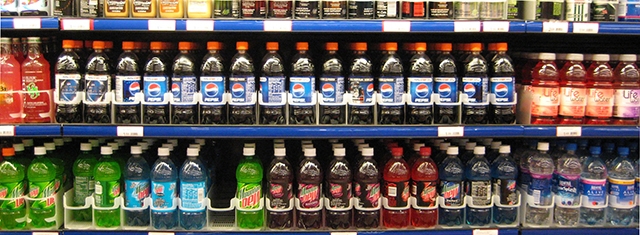Health
ARE VITAMIN DRINKS GOOD FOR US?
NUTRITION SCIENTISTS ARE CONCERNED

Vitamin Added Waters
USPA NEWS -
Juices, sports drinks and water are increasingly being added with vitamins and minerals by companies, responding to consumer growth in demand for these products. Even though the amount of added nutrients in these drinks are small, some nutrition scientists are concerned.
Many people may be ingesting levels of vitamins and other nutrients that are not only unnecessary, but potientially harmful.
"You have vitamins and minerals that occur naturally in foods, and the you have people taking supplements and then you have fortified foods," said and assistant professor in the department of nutrition science at Purdue University. Potientially, people might get more vitamins than they really need.
Studies show the average person is exposed to unusually high levels of vitamins and minerals. Already, more than half of all the adults in the United States take a multivitamin or dietary supplement.
Bread and milk are often fortified with folic acid, niacin and vitamins A and D.
"You have vitamins and minerals that occur naturally in foods, and the you have people taking supplements and then you have fortified foods," said and assistant professor in the department of nutrition science at Purdue University. Potientially, people might get more vitamins than they really need.
Studies show the average person is exposed to unusually high levels of vitamins and minerals. Already, more than half of all the adults in the United States take a multivitamin or dietary supplement.
Bread and milk are often fortified with folic acid, niacin and vitamins A and D.
A study published in July found that many people are exeeding the safe limits of nutrient intakes established by the Institute of Medicine. Moreover, people who take dietary supplements are often the ones who need them the least.
Experts are concerned about the explosion of beverages marketed specifically for their high levels of antioxidants, like Vitaminwater, POM Wonderful, Naked Juice and many others. The body requires antioxidants to neutralize free radicals that can damage cells and their DNA. But it also uses free radicals to fight off infections and cancer cells, experts say, and when antioxidants are present in excess, it can throw things out of balance.
Experts are concerned about the explosion of beverages marketed specifically for their high levels of antioxidants, like Vitaminwater, POM Wonderful, Naked Juice and many others. The body requires antioxidants to neutralize free radicals that can damage cells and their DNA. But it also uses free radicals to fight off infections and cancer cells, experts say, and when antioxidants are present in excess, it can throw things out of balance.
A study published in January analyzed 46 beverages-both with and without sugar-sold in supermarkets. It found that many of these drinks contained vitamins B6, B12, niacin and vitamin C in quanities "in excess" of the daily requirements for young adults.
Eighteen of these drinks contained more than triple the daily requirements for B6. Eleven had more than three times the requirement for B12. And a half a dozen had more than three times the requirement for niacin or riboflavin.
Some of these products promised improvements in energy and immune function, while others promoted performance and emotional benefits related to nutrient formulations that go beyond conventional nutritional science, the researchers said.
Eighteen of these drinks contained more than triple the daily requirements for B6. Eleven had more than three times the requirement for B12. And a half a dozen had more than three times the requirement for niacin or riboflavin.
Some of these products promised improvements in energy and immune function, while others promoted performance and emotional benefits related to nutrient formulations that go beyond conventional nutritional science, the researchers said.
A nationwide study carried out by the National Institute of Health in 2012 found that Americans who take vitamins and supplements were already getting large amounts of nutrients from their food and on top of that they had the lowest prevalence of vitamin defeciencies to begin with. The study found that supplement use put these people at risk of potentially excessive consumption of folic acid, calcium, iron, zinc, magnesium and vitaminsA,C and b6.
Added vitamins may clearly aid some people, including women who are pregnant or lactating, or those with specific nutritional deficiencies. There is no justification for high intake of vitamins and minerals.
Added vitamins may clearly aid some people, including women who are pregnant or lactating, or those with specific nutritional deficiencies. There is no justification for high intake of vitamins and minerals.
When consumed in excess, some water-soluble vitamins like B and C are excreted in the urine. On the other hand, fat-soluble-vitamins- including A,D,E and K-accumulate in tissues, posing potential risks.
The fat soluble vitamins are very stable and are not released in the urine. Over-consuming them can raise your levels gradually over time interfering with liver function.
The fat soluble vitamins are very stable and are not released in the urine. Over-consuming them can raise your levels gradually over time interfering with liver function.
Liability for this article lies with the author, who also holds the copyright. Editorial content from USPA may be quoted on other websites as long as the quote comprises no more than 5% of the entire text, is marked as such and the source is named (via hyperlink).





